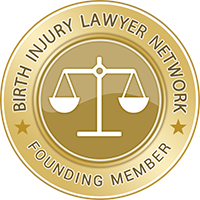Erb's Palsy/Brachial Plexus Palsy/Shoulder Dystocia
Erb's Palsy is one form of Brachial Plexus Palsy wherein the muscles of the upper arm and shoulder girdle are paralyzed. This paralysis or loss of movement or weakness of the arm is caused by damage to the Brachial Plexus of the baby during delivery. Other terms used to refer to Erb's Palsy are Duchenne-Erb Palsy, Duchenne-Erb Paralysis and Erb Paralysis
The brachial plexus is the union of five large nerves—C5, C6, C7, C8 and T1 which come out of the spinal cord between the bones in the neck called the vertebrae and give movement and feeling to the arm. These nerves are divided among the muscles and tissues of the arm. The brachial plexus runs from the neck and passes under the collarbone to become the major nerves of the arm at about the level of the armpit. Erb's Palsy is often limited to damage to the 5th and 6th cervical nerves or the C5 and the C6. It affects the movement of a baby’s shoulder, arm and hand.
Cause of Erb's Palsy
The most common cause of Erb's Palsy is Shoulder Dystocia. Dystocia is defined as an abnormal or difficult childbirth or labor. Shoulder Dystocia happens when the baby's shoulder gets stuck inside the mother's body or the birth canal during a vaginal delivery. The pulling of the baby’s head may result to too much stretching of the nerves between the neck and the stuck shoulder and thus the injury is incurred. Aside from Shoulder Dystocia, Erb's Palsy can also result from pressure applied on the raised arms of the baby during a breech delivery. Or the injury can also be a result of a fracture of the baby’s clavicle unrelated to Dystocia.
Risk Factors of Erb's Palsy
- Mothers who have had a prior child with shoulder dystocia, regardless of whether the previous child had a brachial plexus injury
- Mothers who have had their labor induced or speeded up with drugs like Cervadil, Pitocin, or Cytotec
- Larger babies, predictably, born to mothers with diabetes, or gestational diabetes, particularly if the blood sugars have not been carefully monitored and managed
- Mothers with smaller or unusual shaped pelvises or pelvic openings
- Larger babies
- Prolonged labors
- Precipitous deliveries
- Breech position
- Fetal mal-position in the birth canal
Signs of Erb's Palsy
Babies with Erb's Palsy will have their affected arm internally rotated, wrist bent and hang limply from their side. They will also not be able to lift their affected arm. Babies with severe nerve injury will also manifest a droopy eyelid on the side of the injury.
Erb's Palsy can affect the infant’s development such as stunted growth of the affected arm wherein it will be smaller than the unaffected arm. The condition will also lead to impaired muscular, nervous and circulatory development. The lack of muscular development will leave the affected arm weaker and thus cannot be lifted without aid.
Treatment of Erb's Palsy
The paralysis can be partial or complete depending on the nature of the damage which can range from bruising to tearing of the nerves. The paralysis can resolve on its own over a period of months if the injury to the nerves is only mild. In severe cases such as the nerves are ripped from their points of attachment to the spine or ruptured leading to permanent paralysis of the arm and shoulder, rehabilitative therapy or even surgery is required.
Prevention of Erb's Palsy
Unlike other birth injuries, a baby can be spared from Erb's Palsy by having good health care during pregnancy; good advanced planning of the obstetrician; informing the baby’s parents early and involving them in anticipatory decision-making; and knowing how to maneuver a baby out of shoulder dystocia.
Find an Experienced Birth Injury Attorney in your Local Community
 Find A Lawyer in Columbus, OH
Find A Lawyer in Ohio
Find A Lawyer in Any State
Find A Lawyer in Columbus, OH
Find A Lawyer in Ohio
Find A Lawyer in Any State
